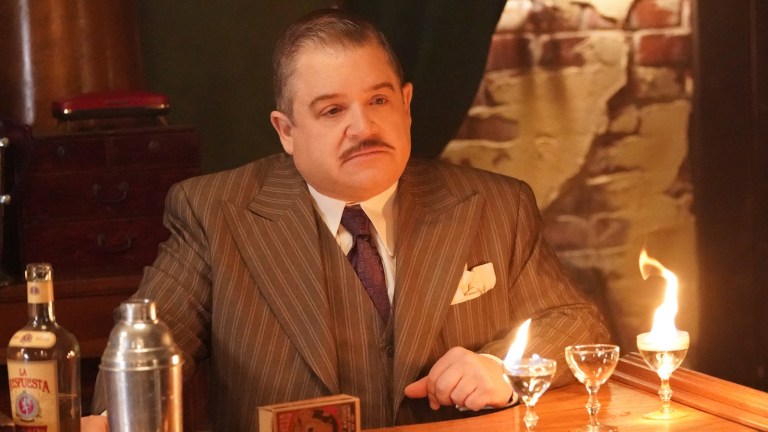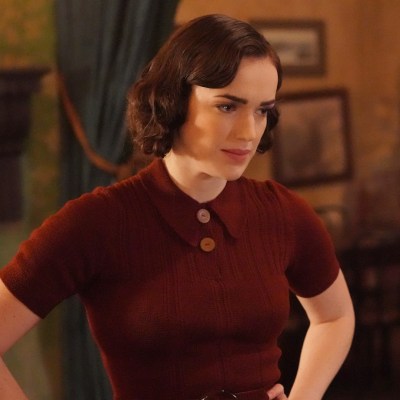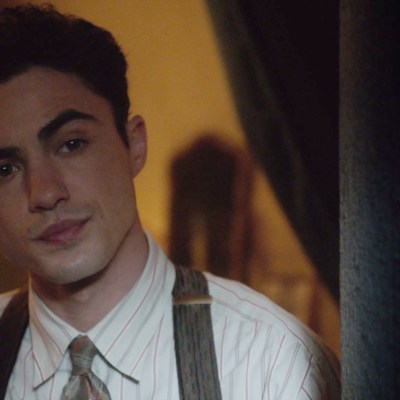Agents of SHIELD Season 7: The Koenig Family Mystery
The origins of the lookalike Koenig family have been an Agents of SHIELD mystery from the start. Are answers forthcoming in season 7?

This article contains Agents of SHIELD season 7 spoilers.
Everyone was excited to hear that Patton Oswalt would be returning to Agents of SHIELD for its final season, but no one was sure how his recurring character, the multifaceted Agent Koenig, would reappear given that the team was headed to 1931. The bootlegger known as Ernest Hazard Koenig certainly wasn’t what we were expecting, and until the latest episode, his presence as a figure in SHIELD history couldn’t really be explained. How exactly does a criminal operating an illegal speakeasy become wrapped up in a secret government agency, and how could his bar end up being an SSR safehouse? And what’s the connection between this man and the brothers Koenig, all of whom look exactly like each other as well as their presumed ancestor?
The first Koenig we ever met in Agents of SHIELD was the dear, departed Eric, who was left in charge of a secret SHIELD base known as Providence back in season one. During the Battle of New York depicted in The Avengers, Eric was supposedly ordered by Director Nick Fury to place himself and the facility into lockdown, and Coulson and his team retreated to the base once Hydra’s infiltration within the organization became clear. Eric distinguished himself as a bureaucrat obsessed with security lanyards and ensuring that none of the remaining agents were Hydra plants. Unfortunately for him, Grant Ward was indeed a mole, and Eric paid for his scrutiny with his life.
If that had been the last we saw of Oswalt’s character, his guest appearance would likely have long been forgotten, but Koenig returned for the season one finale when Fury sent Coulson coordinates to yet another secret base: the Playground, a former SSR facility manned by an identical twin of Eric named Billy. Only Agent Antoine Triplett, played by B. J. Britt, suspected that the “twins” were more than just brothers, and when a third Koenig, Sam, was introduced in season two, Trip came right out and asked how many brothers there were. Although Sam and Billy both answered “thirteen,” they insisted that they were only joking, and both the audience and Trip were always left wondering how human the Koenigs were.
Although season four of Agents of SHIELD claimed to finally reveal the full Koenig sibling lineup, including a physically identical slam poet named Thurston and a sister named L. T., the final confirmation that the quadruplets were entirely human still felt false. Trip’s suspicions were always with us, and an offhanded comment in season two — another joke, we’re told — that one of the brothers was “recharging his batteries” had us thinking about the “life model decoys” of the Marvel comics long before we confronted the season four storyline centering on Aida, supposedly the first LMD of the series.
And now in the final season, Agents of SHIELD has given us Ernest Koenig, presumably a progenitor of the quadruplets who has by necessity been exposed to the technology of the future so that he could assist in the mission at hand. Could it be that the very presence of SHIELD in the past is what motivates the shady character to change “swordfish” from a speakeasy password to the access code for the kind of secret base that his descendants will become known for? It’s the kind of causality loop that can melt viewers’ brains!
Enoch the Chronicom being left behind when the team time jumped at the end of “Know Your Onions” can’t be a coincidence either, can it? Koenig was clearly fascinated by the sentient robot and wanted to know everything he could about SHIELD his new bartender, so despite the future Koenigs insistence that they were not the artificial constructs Trip thought they were, what if Chronicom technology — the same sophisticated design that makes the new Coulson so real — is behind the Koenig clones?
Agents of SHIELD may choose to let the enigmatic epilogue speak for itself the way it has with most other Koenig-centric storylines, or we may get further clarification in future episodes. Maybe a more aged Ernest Koenig shown in another decade of the twentieth century will reveal that he has gained a better understanding of artificial intelligence since the team left 1931, or perhaps the evolution of the Koenig family will be left to our imagination instead. Either way, the mystery of why so many Koenigs look exactly the same is an enduring part of the series’ mythology and will likely be one of the show’s overall highlights whether fans get more answers or not.


